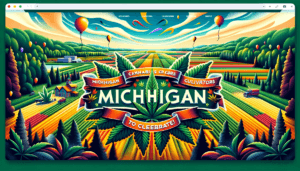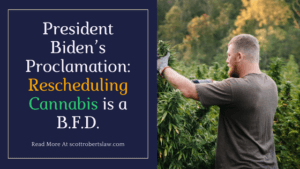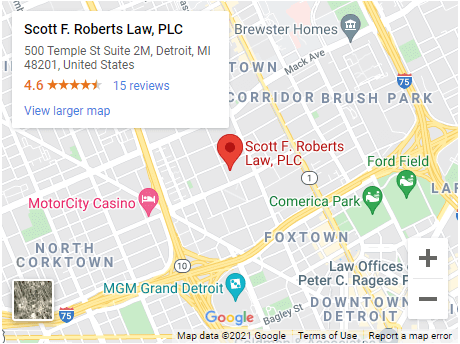A very recent decision by the federal court for the Ninth Circuit of Appeals in California granted an injunction that has the potential to give delta-8 THC legal status across the U.S. The issue of the case, AK Futures v. Boyd Street Distro, focused on a claim by AK Futures that the defendant was illegally selling a counterfeit version of its properly-trademarked products without AK’s consent. In its defense, Boyd Street Distro claimed that it indeed could sell the “allegedly-counterfeit” products because these products contained delta-8 THC, making them federally illegal and therefore impossible to be protected by trademark. Thus, the crux of the issue hinged on whether or not delta-8 THC is considered federally legal or illegal under the 2018 Agriculture Improvement Act (Farm Bill).
The language of the ’18 Farm Bill allowed for the legal production of industrial hemp, recognizing its versatility and functionality as a viable alternative to many industrial plastics and fibers. The goal of the Farm Bill was to remove the barriers that hemp producers experienced while the plant was considered a controlled substance. To accomplish this, the Farm Bill provides a clear definition of hemp and allows for its production at an industrial scale. However, this statutory definition of hemp focuses solely on the concentration of delta-9 THC, which is the main psychoactive component of cannabis. Congress defines hemp as any derivative, extract, or cannabinoid originating from the cannabis plant that does not contain any more than 0.3% delta-9 THC. What the industry has critically noted from this language was the lack of a ban on THC, creating a loophole for delta-8 THC products.
If the Ninth Circuit was persuaded by Boyd Street’s argument, that would require them to consider delta-8 as a cannabis derivative closer to psychoactive cannabis than it is to the legalized industrial hemp. This would in turn make the products Boyd Street was selling federally illegal products, but it would also make any trademark or trademark claims by AK Futures null and void because they could not hold federal trademark rights on illegal substances. The court, however, did not consider the products federally illegal. Instead, the court granted the injunction for AK Futures, relying on the plain meaning of the language in the ’18 Farm Bill.
The plain language interpretation of these portions of the Farm Bill simply removes hemp from the definition of “marijuana” in the Controlled Substances Act. The court was compelled to comfortably categorize delta-8 THC as ‘hemp’ since the delta-8 THC concentrate at issue was properly understood as a derivative, extract, or cannabinoid that originated from cannabis and contained less than 0.3% delta-9 THC. This classification ultimately means that in the eyes of this federal appeals court, delta-8 THC is not an illegal substance, so AK Futures’ trademarks are perfectly valid and deserving of the injunction it requested. Because the court did not deem the language ambiguous, it did not defer to other means of statutory interpretation such as applicable federal agency perspective. Nevertheless, the court opined that if it did consider the DEA’s perspective, it too would support the position that delta-8 THC is not an illegal substance.
What the court is not doing here is making a declarative opinion that all delta-8 THC is and shall be legal in all the United States, and it would be a regulatory danger to think it was. What the court is doing is refusing to interpret the law beyond what Congress has written. The fact is that the term “delta-8 THC” does not appear in the language of the ’18 Farm Bill or the Controlled Substance Act, so to extend an interpretation that it is an illegal substance would be improper.
According to the Ninth Circuit, Congress’ silence on the matter is something Congress itself will have to address, and until then it is unwilling to declare the substance illegal. Lawmakers may have inadvertently created this loophole for delta-8 THC, but if that were the case, they would have to correct the mistake.
Relying on the absence of language expressly making delta-8 THC illegal, and not affirmative language making it a legal substance, the decision would appear to not supersede state laws that validly address the legality of delta-8 THC.
As of 2021 Michigan is one such state, where House Bill 4517 makes delta-8 THC a regulated substance under the state’s Cannabis Regulatory Agency. Even if the presumption now is that delta-8 THC is to be treated as a legal substance, separate from “marijuana” on the Controlled Substance Act, a dedicated state law should still be able to prohibit the product completely or enforce governmental regulation on the product as a psychoactive compound, as was done in Michigan. This will change if and when Congress decides to add definitive language making delta-8 either legal or illegal.
If you have any business or legal inquiries regarding the legality of delta-8 THC, industrial hemp, copyrights and trademarks, or cannabis in general, do not hesitate to contact the experienced cannabis attorneys of Scott Roberts Law here or at (248)-243-4510.




